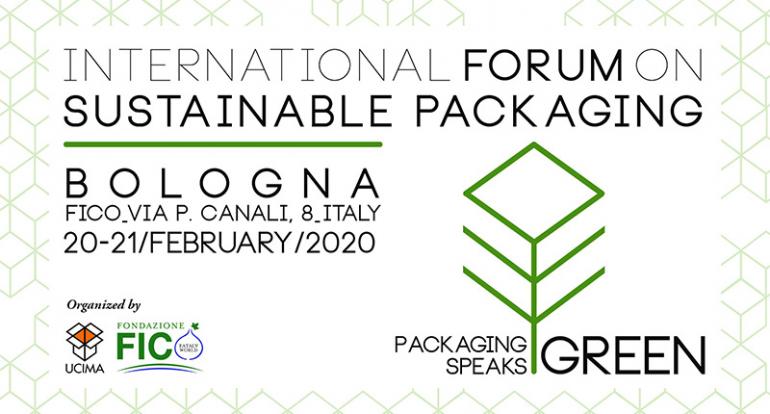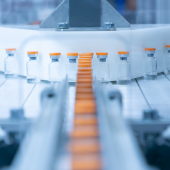Italians are focusing more sustainable packaging. Previewed in Milan data from the Nomisma survey

The data from the NOMISMA survey on trends in purchasing and sustainable consumption, was previewed in Milan in preparation for "Packaging Speaks Green" the international forum on sustainability of industrial manufacturing due to be held in Bologna on 20 and 21 February at the Eataly World venue.
Italians are focusing increasing attention on the packaging of the products they buy and are demanding greater commitment from companies and retailers in order to reach a turning point in the environmental situation.
This is supported by the data provided by the unit dedicated to monitoring the packaging used for fast-moving consumer goods established by NOMISMA in collaboration with Spinlife, with the 2020 Report prepared in anticipation of the "Packaging Speaks Green" international forum organised by UCIMA and the FICO Foundation at Bologna's FICO Eataly World Auditorium, for Thursday 20 and Friday 21 February.
The environmental impact of packaging is an influential factor for 46% of consumers when choosing personal care and home products and for 43% in their choice of food products. 48% say they have stopped buying over-packaged products, 22% have cut down on products with plastic packaging, 23% have increased their purchases of loose products. Consumers want more sustainable packs, but 41% are not willing to pay more and a further 26% declare a very low willingness to pay different prices (which, in practice, could mean nobody is wiling). This is because 99% of consumers feel it is the manufacturers' and the retailers' duty to make the commitment and adopt packaging with a lower environmental impact.
Attention to the sustainability of packaging is part of a bigger picture in which attitudes are shifting towards greater environmental awareness. In fact, while in the food & beverage industry product quality (meaning thereby the origin of the raw materials, the level of certification ...) still represents the main purchase driver (specified by 44% of those responsible for making purchases), the sustainability of the product (environmentally friendly, low-impact …) now ranks second (specified by 36%).
But what are the attributes that make a product sustainable in the consumer's eyes? Being organic (42% of those responsible for making purchases identify organic certification as the main indicator of sustainability), having a packaging made with recycled or low-impact materials (37%), originating from a production process that uses renewable sources (31%) or has low energy/water consumption (18%), and guaranteeing a fair wage to those who produce it (24%). When consumers think of sustainable packaging, they think of packaging made of degradable (56%) or reusable (39%) materials. In terms of materials, the most environmentally friendly material for food is paper (specified by 47% of those responsible for making purchases). As far as beverages go, glass and cartons are seen by consumers as the most sustainable materials (64% and 26% respectively), while plastic is trailing far behind (4%).
Where do Italians want more sustainable packaging? First and foremost for water for 1 in 3 Italians (29%), followed by fresh fruit and vegetables for 1 in 5 consumers (20%), and then biscuits/snacks, carbonated drinks, tinned pulses, and milk.
These are the main findings that have emerged from work by the Nomisma unit dedicated to monitoring the packaging used for fast-moving consumer goods. What also emerged was the need for the provisions of clear information in order for consumers to make informed purchasing choices in relation to packaging. Sustainability is a priority for Italians and it is common knowledge that everyday actions can make a difference when it comes to protecting the environment, as declared by 98% of Italians.
What are Italians doing most? Separating their waste (as many as 83%), saving electricity (78%) and water (77%), buying or using fewer plastic bottles (41%), and opting for sustainable transport (38%). Social media (34%) and TV programmes (32%) are a key source of information, and awareness campaigns are just as important - specified by 32% of Italians. Endorsements by global names also count, from Greta Thunberg to Leonardo Di Caprio (29%).
Communication is certainly a significant means of raising awareness among consumers about the choice of sustainable packaging and work must be done to simplify the transfer of information through the content of labels, claims, images, copy, etc. In order to measure and convey the environmental impact of packaging, the same manufacturers that supply private label products to the main Italian brands (60%) believe that including a packaging sustainability rating on labels to be an effective and functional tool.
What are Italians most worried about right now? 96% are concerned about their environmental footprint. 37% of respondents said, today, they are most concerned about the environment: 1 out of 3 declared that the national government and international institutions should focus their actions on this priority, while 67% feel the environment will have become a dominant concern by 2050. Concern for the environment, from a medium/long-term perspective, rates higher that worries about unemployment, which is a top priority in terms of intervention needed for 56%, followed by taxes and tax concerns, which is a priority area requiring action according to 39% of respondents.
As regards the environment, climate change is the most worrying aspect for Italians (specified by 56% in multiple choice answers), followed by water pollution (54%). More than 1 in 2 Italians are interested in the sustainability issue and 1 Italian in 3 (32%) claims to be very familiar with the topic, a figure that rose by 10% from 2018 to 2019. 4 out of 10 Italians (41%) feel sustainability is simply a trend, for 47% it is a significant issue.





















